 AACR ANNUAL MEETING 2024
AACR ANNUAL MEETING 2024
MEET US at Booth #1505
Unleash the full potential of your oncology and immuno-oncology research with our suite of patient-derived organoid solutions
Connect with the pioneers of Organoid Technology at AACR 2024!
 Dr. Robert Vries Chief Executive Officer |
 Dr. Bahar Ramezanpour Chief Business Development Officer |
 Dr. Sylvia F. Boj Chief Scientific Officer |
Meet an Organoid Expert
Got burning questions on organoid technology? Join us at our booth to connect with the brilliant minds that push the boundaries of this emerging technology

MEET THE EXPERT ON:
Organoid imaging
7th April, 1:30 PM
Rene Overmeer, Principal Scientist

MEET THE EXPERT ON:
Organoid-based co-cultures for immunotherapy
8th April, 10:00 AM
Lorenzo Spagnuolo, Senior Scientist

MEET THE EXPERT ON:
Organoids in predicting patient treatment response
8th April, 12:30 PM
Carla Verissimo, Head of Department, Oncology

MEET THE EXPERT ON:
Modeling host-pathogen interactions
8th April, 3:00 PM
Eider Valle Encinas, Scientific Business Developer Manager

MEET THE EXPERT ON:
Organoids in high-throughput screening
9th April, 12:30 PM
Sabina Lukovac, Director Organoid Services

MEET THE EXPERT ON:
Autologous organoids and T-cell co-cultures
9th April, 3:00 PM
Claudia Beaurivage, Senior Scientist
Explore our poster presentations
We'll be presenting 11 poster presentations that capture the latest scientific advancements we have made in the oncology and immuno-oncology space.

Resistant PDO models: Unraveling drug resistance mechanisms for discovering new drug targets
Session Category: Experimental and Molecular Therapeutics
Session Title: Drug Resistance 1: Models
Session Date and Time: Sunday, Apr 7 | 1:30 PM - 5:00 PM
Location: Poster Section 22 | Poster Board 3
Resistance to cancer treatment remains a significant obstacle in curing patients with cancer. Despite recent advancements in novel drug targets for cancer therapeutics, patients often develop treatment resistance even after initial disease remission, leading to tumor relapse. To investigate the mechanisms responsible for developing resistance to standard of care therapies, it is essential to gain insights into the stepwise progression leading to complete resistance. Recent research has revealed that cancer cells can evade the effects of chemotherapy and targeted therapy by entering a reversible and slow proliferation state known as the drug-tolerant persister (DTP) state. This DTP state allows cancer cells to survive drug therapy long enough for additional mechanisms of acquired drug resistance to develop. HUB Organoids® or patient-derived organoid (PDO) models are derived from patient tissues, making them more physiologically relevant than traditional cell lines. Thus, studying drug resistance in PDO models is more likely to reflect in vivo conditions. This study demonstrates the successful development of resistant CRC PDO models to standard-of-care therapies. All models were characterized using whole exome sequencing and RNA sequencing to confirm their resistant state and identify possible pathways involved in developing therapy resistance, as well as potential new drug targets. In conclusion, developing resistant PDO models is crucial for understanding drug resistance mechanisms, enabling the development of more effective and personalized cancer treatments, and advancing our overall knowledge of how resistance develops in cancer patients.
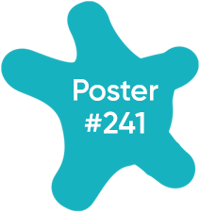
Patient-derived organoids as a reliable screening platform for assessing ADC efficacy and specificity
Session Category: Tumor Biology
Session Title: Organoid Models of Cancer 1
Session Date and Time: Sunday, Apr 7 | 1:30 PM – 5PM
Location: Poster Section 9 | Poster Board 25
Antibody-drug conjugates (ADCs) are a new class of pharmaceutical drugs designed to deliver cytotoxic agents to cells expressing specific antigens selectively. Based on Paul Ehrlich’s “magic bullet” concept, ADCs are designed to target cancer cells, minimizing systemic toxicity typical of conventional chemotherapy. ADCs structurally consist of a particular monoclonal antibody linked to a cytotoxic agent. Patient-derived Organoids (PDOs) provide a new tool for studying cancer biology and patient stratification. PDOs are adult stem cell-based culture systems maintaining the patient-specific genetic and phenotypic characteristics, including surface marker expression. HUB Organoids has generated a large biobank of PDOs characterized on the genomic and transcriptomic level. The work presented here shows the suitability of the organoid platform for performing ADC screening. Organoids were selected based on their target-antigen (TA) expression, assessed by flow cytometry and RPKM. Organoid killing was assessed with a viability readout (CellTiter Glo) after six days of treatment. Results of viability screening show a correlation between TA-targeting ADC-induced organoid killing and TA expression in the organoids. These results reveal that PDOs hold value for the preclinical development of ADCs and for evaluating their tumor specificity. Moreover, PDOs have the potential to predict patient specific response to ADCs.
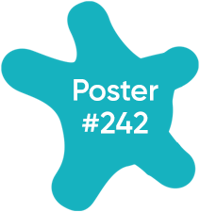
Development of organoids-bacteria co-cultures for medium-to-high throughput screening
Session Category: Tumor Biology
Session Title: Organoid Models of Cancer 1
Session Date and Time: Sunday, Apr 7 | 1:30 PM – 5PM
Location: Poster Section 9 | Poster Board 26
HUB patient derived organoids, (HUB-Organoids™ or PDOs) are selforganized epithelial cell structures with near-physiological features, extensively used to model aspects of cancer initiation and progression. Microinjection of colibactin-producing pks+ E. coli into the lumen of PDOs resulted in the appearance of two co-occurring mutational signatures identified in a subset of colorectal cancer (CRC) patients, demonstrating that pks+ E. coli plays a causative role in CRC development. The scalability of PDO bacteria microinjection is, however, limited and represent a bottleneck in the screening of preventive therapies for these patients. Here we develop a bacteria-PDO co-culture system (PDO-fragment exposure model), alternative to PDO microinjection, that is compatible with medium-to-high throughput screening methods. We validated the genotoxicity of colibactin-producing bacteria and showed the potential of the PDO fragment exposure model for the screening of drugs targeting colibactin-dependent genotoxicity.
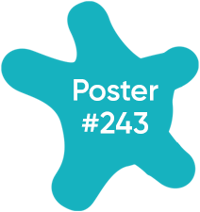
Organoid co-cultures with allogenic T cells to assess toxicity and efficacy of bispecific antibodies
Session Category: Tumor Biology
Session Title: Organoid Models of Cancer 1
Session Date and Time: Sunday, Apr 7 | 1:30 PM – 5PM
Location: Poster Section 9 | Poster Board 27
Recent advances in cancer immunotherapy positively impacted the life expectancy of patients for an extensive range of clinical indications. With new treatment strategies, druggable targets and biomarkers being identified at an increasing pace, the number of patients eligible for cancer immunotherapy is expected to expand steadily. For example, the emerging Bispecific T cell Engagers (BiTEs) designed to simultaneously target CD3 and tumor-specific antigens and promote T cells cytotoxicity have seen recent success in the clinic. While BiTEs have been approved for the treatment of hematologic malignancies, promising therapeutic developments for solid tumors face hurdles in translating preclinical findings into therapy since conventional two-dimensional cancer models fail to recapitulate the immune cell interactions in the tumor microenvironment and therefore hold low clinical predictive value. We developed an innovative alternative, building on the discovery that adult stem cells proliferate and organize into three-dimensional organotypic structures that maintain complex characteristics of the original parental tissue, including molecular heterogeneity and morphological and functional traits. Here we show the development of a patient-relevant preclinical platform for immunotherapy development in which colorectal (CRC) and non-small cell lung cancer (NSCLC) organoids are co-cultured with allogenic or autologous T cells to evaluate the activity and assess the cytotoxic potential of a BiTEs. The expression of tumor-specific BiTE target antigens is determined in patient-derived organoids (PDOs) by flow cytometry. Following this assessment, T cell-induced organoid death is quantified and characterized in real-time by image-based analysis of fluorescent live/dead dyes. Additionally, we measure cytokine secretion as a read-out of T cell activation and function. In our co-cultures, T cell-induced PDO death was increased upon BiTEs treatment. Similarly, IFNγ secretion correlated with expression levels of the targeted tumor antigen. In addition, PDO apoptosis and IFNγ secretion increased in a dose-dependent fashion in the presence of the TA-targeting TCB. In summary, our organoids and T cells co-cultures offer a powerful platform for the development and validation of immunotherapies such as T cell-bispecific antibodies and will significantly contribute to our understanding of the critical factors determining successful immunotherapies.
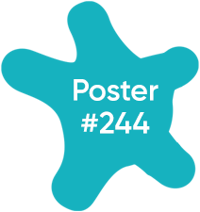
Patient-derived organoids: A pre-clinical model to assess infection and killing capacity of viral vectors for cancer therapy
Session Category: Tumor Biology
Session Title: Organoid Models of Cancer 1
Session Date and Time: Sunday, Apr 7 | 1:30 PM – 5PM
Location: Poster Section 9 | Poster Board 28
HUB’s patient-derived organoids (PDOs) are in vitro models that preserve tissue morphology and original cellular complexity. Additionally, PDOs are compatible with (high) throughput screening methods, enabling informed decision-making early in the drug development pipeline and significantly improving the odds of positive outcomes in clinical trials. Akamis Bio has developed experimental viral vector-based tumour gene therapies that have the potential to treat a variety of solid tumours by driving the expression of immunologically active biomolecules and therapeutic proteins hampering tumour immune evasion. These vectors are based on a replication competent, chimeric group B adenovirus backbone that selectively replicates and expresses transgene payloads in tumor cells, and additionally exerts oncolytic activity. To evaluate the efficacy of such a virus-based gene delivery strategy, HUB set up a proof-of-concept study to assess the propagation capability of Akamis Bio’s viral vectors in tumour PDOs. Intact PDOs from primary pancreatic tumours were infected with several viral loads, ranging from 0.1 viral particles per cell (PPC) to 100 PPC. The viral vector encoded a GFP reporter gene to identify infected cells using fluorescence imaging. The cultures were imaged daily for 14 days, allowing the assessment of cytotoxicity and infection efficiency and dynamics. Independently of PPC, infections always started in the exterior of PDOs in a few GFP-positive cells. The gradual increase over time in GFP-signal toward the interior of PDOs suggests the high likelihood of secondary infection events. Crucially, GFP intensity was correlated with cell death in PDOs, as evidenced by morphological features detected in brightfield images. Moreover, the infection dynamics were dose-dependent, as the GFP intensity peak arose later with decreasing PPC. These results show the capacity of HUB PDOs to study the infection dynamics of Akamis viral vectors . This pre-clinical platform permits rapid and efficient screening and dose evaluation for oncolytic virotherapies. Unique access to extensive tumour PDO biobanks with characterized genomic landscapes allows best-in-class stratification of treatment response based on tumour type and genetic heterogeneity.--------
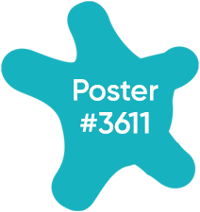
A patient-derived organoid platform to assess the effectiveness of γδTCR cell therapy in solid tumors
Session Category: Clinical Research
Session Title: Adoptive Cellular Therapy 1
Session Date and Time: Monday, Apr 8, | 1:30 PM - 5:00 PM
Location: Poster Section 39 | Poster Board 17
Recent advances in cancer immunotherapy have positively impacted the life expectancy of patients for an extensive range of clinical indications. With new treatment strategies and druggable targets being identified at an increasing pace, the number of patients eligible for cancer immunotherapy is expected to expand steadily. However, promising therapeutic developments face hurdles in translating preclinical findings into therapy since conventional 2D cancer models hold low clinical predictive value. HUB developed an innovative alternative, building on the discovery that adult stem cells proliferate and organise into three-dimensional organotypic structures when embedded into the extracellular matrix. Patient-derived organoids are generated from healthy and malignant tissues, and they recapitulate complex characteristics of the original parental tissue, including molecular heterogeneity and morphological and functional traits. Cell therapies have achieved positive results in treating haematological cancers. Recently, the unique tumour-targeting properties of γδ T cell receptors have been leveraged to develop safer and more effective strategies. HUB and Gadeta joined efforts to explore the therapeutic potential of GDT002 - i.e. αβ T cells engineered with a Gadeta proprietary new γδTCR - to target solid cancers. A preclinical basket trial was performed using patient-derived organoids from several tumour types (colorectal, breast, head and neck, ovarian cancers) cocultured with GDT002. The results showed broad reactivity of GDT002 against solid tumor PDOs. Interestingly, GDT002 was particularly efficient at killing ovarian cancer-derived PDOs, allowing Gadeta to move GDT002 to clinical trials for this indication confidently. This study reveals that our tumor organoid co-culture with engineered T cells platform holds significant value for the preclinical development of cellular therapies.
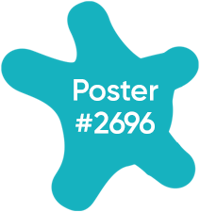
Tumor organoid and immune cells co-cultures to study myeloid cells-targeting immunotherapy
Session Category: Immunology
Session Title: Innate Immunity in Cancer
Session Date and Time: Monday, Apr 8 | 1:30 PM - 5:00 PM
Location: Poster Section 5 | Poster Board 18
Cancer immunotherapy is one of the main pillars of oncology treatment, due to the clinical success of approaches that enhance anti-tumoral T cell responses. Nonetheless, many patients do not benefit from these approaches, highlighting the need to develop novel immunomodulatory strategies. Exploiting the anti-tumor capacity of innate immune cells is a promising approach that can overcome specific limitations of T cell-targeting therapies and complement existing immunotherapies. Still, promising therapeutic developments face hurdles in translating preclinical findings into treatment since conventional 2D cancer models hold low clinical predictive value. HUB developed an innovative alternative, building on the discovery that adult stem cells proliferate and organize into three-dimensional organotypic structures. Patient-specific organoids are generated from healthy and disease tissues and recapitulate complex characteristics of the original parental tissue, including molecular heterogeneity and morphological and functional traits. To assess the efficacy of therapies that engage innate immune cells, we developed an assay in which organoids derived from colorectal (CRC) or breast cancer patients are co-cultured with PBMC-derived macrophages or monocytes to evaluate the cytotoxic potential of exogenously activated myeloid cells.
We tested the ability of macrophages to phagocyte human CRC organoid cells in response to anti-CD47 antibody. The pro-phagocytic function of anti-CD47 was detected by several methods (i.e., flow cytometry, imaging), indicating the platform's suitability to evaluate ADCP-modulating compounds. Moreover, to assess whether our PBMC-organoids co-culture platform is suited to detect monocyte-mediated effects, Lipopolysaccharide (LPS) plus IFN-γ were used to activate monocytes in the co-culture assays. We observed an increase in cytokines secretion (i.e., CXCL10), immune cells activation and organoid killing, indicating that our assay allows the detection of monocyte activation through different types of readouts. In summary, our organoid-immune cell co-culture platform allows to study the response of tumor organoids to innate immune cells, holding significant value for the preclinical development of immunotherapies based on innate immune cells.

Miniaturizing patient-derived organoid screening assays for predictive drug testing
Session Category: Tumor Biology
Session Title: Organoid Models of Cancer 2
Session Date and Time: Tuesday, Apr 9 | 9:00 AM - 12:30 PM
Location: Poster Section 11 | Poster Board 18
Colorectal cancer (CRC) ranks as the third leading cause of both cancer incidence and cancer-related mortality. A significant portion of CRC patients diagnosed with de novo metastatic disease face limited benefits from conventional treatment options, often accompanied by substantial side effects. This underscores the pressing need for more effective preclinical models to predict patient responses in clinical settings. Patient-derived organoids (PDOs or HUB Organoids®) represent a pivotal breakthrough in preclinical modeling. These organoids are directly derived from patient tissue, faithfully mirroring the patient's disease. While HUB Organoid Technology is currently applicable for preclinical drug screening, it is essential to expedite the transition from patient diagnosis to the delivery of PDO-based results to directly benefit patients. In a collaborative effort with Yamaha Motor, we have optimized the Yamaha CELL HANDLER™ for automated transfer of organoids, offering enhanced precision and efficiency in handling a significantly reduced number of organoids per screening plate, compared to conventional methods. Moreover, we have developed an image-based readout system that enables precise quantification of organoid numbers, ensuring high assay quality. Utilizing this developed automated platform, we conducted a proof-of-concept investigation into PDO responses to chemotherapy in comparison to corresponding patient response. The correlation between PDO and patient responses demonstrated a strong connection, highlighting the potential of the developed automated platform for predictive drug testing. In summary, this work signifies the development of an automated workflow that synergizes patient-representative HUB Organoids® with cutting-edge robotics from Yamaha Motor. The described workflow reduces the number of organoids needed per screening well, streamlining patient response prediction, potentially leading to faster diagnoses, and ultimately optimizing patient outcomes.
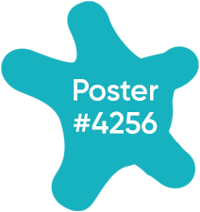
Autologous organoids and T cell co-cultures as a powerful personalized platform for immunotherapy development
Session Category: Tumor Biology
Session Title: Organoid Models of Cancer 2
Session Date and Time: Tuesday, Apr 9 | 9:00 AM - 12:30 PM
Location: Poster Section 11 | Poster Board 27
Recent advances in cancer immunotherapy have had a positive impact on the life expectancy of patients for an extensive range of clinical indications. With new treatment strategies and druggable targets being identified at an increasing pace, the number of patients eligible for cancer immunotherapy is expected to expand steadily. However, promising therapeutic developments face hurdles in translating preclinical findings into therapy since conventional 2D cancer models hold low clinical predictive value. We developed an innovative alternative, building on the discovery that adult stem cells proliferate and organize into three-dimensional organotypic structures when they are embedded into extracellular matrix. Patient-derived organoids are generated from normal and malignant tissues and stored as high-quality biobanks that yield highly reproducible results. HUB Organoids® recapitulate complex characteristics of the parental tissue, including molecular heterogeneity, as well as morphological and functional traits. Since cancer progression and response to immunotherapy are governed by immune cell interactions in the tumor microenvironment, we developed an assay in which colorectal (CRC) and non-small cell lung cancer (NSCLC) tumor organoids are co-cultured with paired tumor infiltrating lymphocytes (TIL) that are simultaneously expanded as a source of tumor reactive cells. Paired resources allow for the screening of immune-modulatory therapies under physiologic conditions, not depending on peptide-pulsing and alloreactivity. We quantify tumor organoid killing and TILs reactivity by combining imaging-based analysis of apoptotic cells with flow cytometry to measure cytokine release by cytotoxic TILs. Here we show that our system is robust and reproducible with an establishment rate of 75%, allowing for expansion of TILs that preserve T cell receptor repertoires. First line expansion of both PDO and TIL components can be used to effectively build coculture models and probe the tumor and immune components, respectively. Our system offers a powerful tool for the development and validation of cancer immunotherapy and can help to stratify cancer patients for susceptibility to various types of immunotherapies.

Organoids to predict treatment response in metastatic colorectal cancer (OPTIC)
Session Category: Clinical Research
Session Title: Predictive Biomarkers 4
Session Date and Time: Tuesday, Apr 9 | 9:00 AM - 12:30 PM
Location: Poster Section 45 | Poster Board 15
The inability to predict treatment response results in unnecessary toxicity, decreased efficacy, and survival. There is a clinical need for an effective biomarker to select patients for cancer treatment. A promising biomarker for treatment efficacy is response testing on patient-derived organoids (PDOs). For metastatic colorectal cancer (mCRC), larger prospective studies are needed to evaluate the predictive value of standardized PDO screens.

Mechanistic validation of MAIT cell engagers in HUB patient-derived organoids (PDO) co-culture model
Session Category: Immunology
Session Title: Targeted Immune Cell Engagers
Session Date and Time: Wednesday, Apr 10 | 9:00 AM - 12:30 PM
Location: Poster Section 3 | | Poster Board 22
In the field of cancer immunotherapy, bispecific antibodies have emerged as a promising approach for redirecting T-cells to target and combat tumors. However, their efficacy is limited to only a subset of patients. A major challenge that hinders the development of bispecific antibody targets is the lack of preclinical models that preserve patient-specific tumor antigens and recapitulate the complex interaction between the human immune system and tumor cells. HUB Organoids technology presents a valuable platform for novel immunotherapies testing and validation as they are directly derived from patient tumor tissues, accurately reflecting patient-specific tumor antigens. BIOMUNEX Pharmaceuticals has developed the BiXAb® technology platform, a computational modeling approach that rapidly generates bispecific antibodies from various monospecific monoclonal antibodies, eliminating the need for extensive engineering. This platform includes a bivalent T cell engager specifically targeting MAIT cells and human epithelial growth factor receptor (HER2), a tumor antigen highly expressed in some colorectal cancer (CRC) patients. This innovative approach forms an efficient immunological synapse, allowing exclusive redirection of MAIT cells to directly eliminate cancer cells. In a collaborative research initiative between HUB Organoids® and BIOMUNEX Pharmaceuticals, the mechanisms by which BiXAb® induce tumor cell killing were confirmed using CRC patient-derived organoids (HUB Organoids® or PDOs) co-cultured with allogenic MAIT cells in an in vitro model. The study results depicted BiXAb® induced MAIT-cell activation in a dose-dependent manner, as detected by FACS and ELISA. Furthermore, BiXAb®-mediated MAIT-cell-specific killing of CRC PDOs was observed in a HER2-dependent manner, determined using an image-based viability assay. In conclusion, the co-culture platform of CRC PDOs-MAIT cells described here effectively captured the activation and targeted killing of MAIT cells mediated by BiXAb®, underscoring the added value of this PDO-based co-culture platform in developing novel immunotherapies.